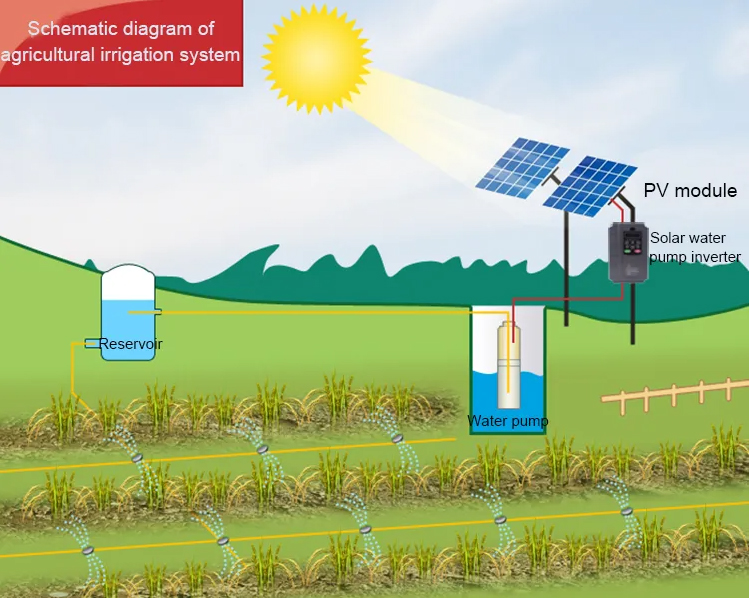Any renewable energy source can make the electricity you need to power appliances, including pumps. Solar electric cells convert sunlight into DC electricity that can be routed directly to DC appliances, or can be stored in batteries for use when the sun is not shining, or can be inverted into AC electricity to power AC appliances.
Solar well pumping generally refers to the use of sunlight to power pumps, while the sun is shining. These are simple systems that do not incorporate batteries for storing electricity. In essence, the water tank or cistern acts as storage. If you can pump water fast enough and your cistern is big enough, then you do not need to pump during the night or during cloudy days.
Batteries are generally not necessary in remote water pumping situations, as long as your system is sized properly and you have enough water flow from the water source.

Solar energy is a clean source of energy, and it does not risk human lives, environment, and economic disasters which may include oil and coal sludge spills, coal mine and devastating gas pipeline explosions, unforeseen nuclear accidents, and water supply contamination from natural gas fracking. Its utilization promotes better health through decreased coal plant emissions pollution.
Water pumps, powered by solar PV panels, are being used frequently to pump water for domestic usage, to irrigate crops and landscape, to cattle, and provide potable water. The advantage of using solar energy for pumping the water is that major quantities of water are required during day time and that too during time when the sun is on top of our head, and during these times the PV panels produce maximum energy and hence the water quantity. These solar pumps can be installed anywhere no matter it is a valley, remotely located farms, forest, or locations which are difficult to reach and are not connected to national electric grid. The utilization of solar water pump in developing countries is providing a workable solution to meet water needs of the people. At the same time, one can also save the environment by avoiding or minimizing the burning of fossil fuel for energy generation. The solar water-pumping technology is commercially available, has-proven record of reliability, require, minimal skilled manpower once in operation, and operation and maintenance cost is also very minimal and affordable.
The reliability and economy of solar electric power make it an excellent choice for powering remote water pumping. Cattle ranchers all over the world are enthusiastic solar water pump users. Their water sources are often spread over many miles of rangeland where utility power is not accessible and where refueling and maintenance costs are high for generator use.
If your water source is more than 1/3 mile from utility power, solar is a favorable economic choice. This fact is substantiated by a number of rural electric cooperatives across the U.S. These co-ops actively promote use of solar pumps because the cost to extend new power lines is prohibitive.